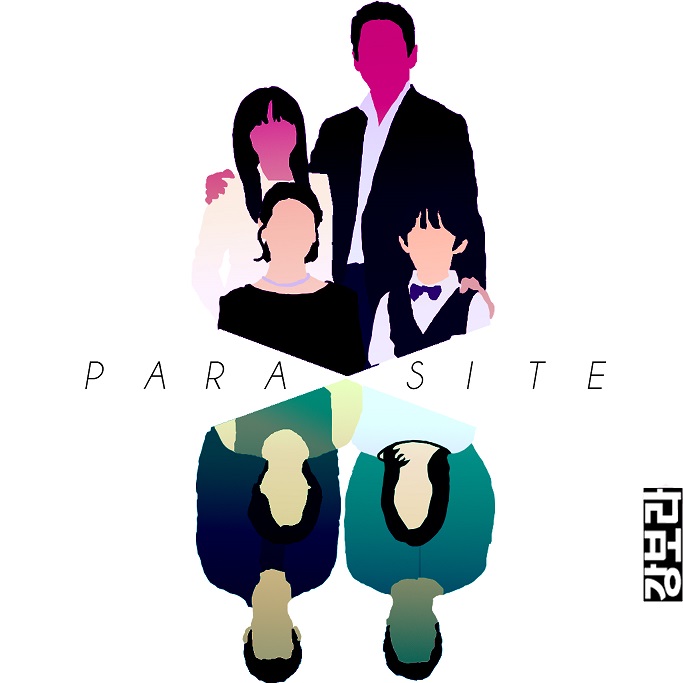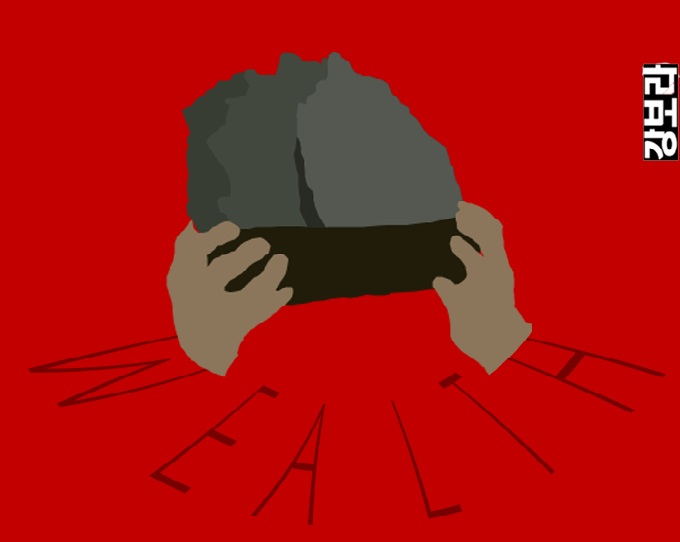- 한국어
- English
- 日本語
- 中文
- العربية
- Español
- Français
- Deutsch
- Pусский
- Tiếng Việt
- Indonesian
By Honorary Reporter Adriana Castilblanco from Mexico
Illustrations: Adriana Castilblanco

(Adriana Castilblanco)
The Oscar-winning film "Parasite" depicts the lives of two families – the Parks and the Kims – in a society teeming with inequality, life issues and daily struggle. The rich Parks are shown as a wealthy, upper-class family with an almost dream-like life, while the poor Kims are presented as a clan fraught with uncertainty and desperation who live hand to mouth.
While the film's main purpose is to portray the contrast between the exclusive upper-income class and the more plentiful lower-income class, the symbols used are a fascinating topic. For example, the Kims are compared to a plague that gradually infests the Parks, and this is hinted at in the beginning when the father Kim Ki-taek throws a cockroach to the ground after foreseeing a plague in their house (similar to what happens to his family in a couple of months).
Another is how the Kims show what they're capable of to survive, like using a fabricated diploma from the prestigious Yonsei University to get a job at the Park home. And during the climax, the flood is used to symbolize the end of the Kims' glory and scam as their half-basement home is gradually filled with water. This symbolizes how this family eventually started drowning in their own lies.

(Adriana Castilblanco)
Another recurring theme is the strategy of "fake it till you make it" to succeed and, to an even greater scale, as a revelation of something that happens daily. This strategy is used by the Kims to get a job and infiltrate the Park home, yet also applies to the Park couple, whose marriage is based on codependency and secrets, not to mention parental absence and lack of communication.
One important question is how guilty should the Kims feel since everyone around them pretends to be something else to survive in society. The housekeeper Moon Gwang is depicted as a near-perfect person, acting as a substitute mother to the Parks' children. Yet even she has a secret -- hiding her sick husband in the basement -- and this shows how even she has had to fake things for the sake of her spouse.

(Adriana Castilblanco)
"Parasite" is a social critique of Korean society, in which the stereotype of a poor but united family and that of a wealthy but dysfunctional family remain visible, as well as how everybody in society plays a role based on their status, adding to the formula the intangible divisions between social strata.
This is seen in the movie when Ki-taek decides to stay in the bunker when being chased by police. The bunker is where he belongs because of what he is. Even if he tries to move up to a higher social class, certain details like his body odor will never let him adapt. He will always represent the plague of cockroaches on a table, a parasite that sneaks into places to survive given the harshness of life.
But after all, aren't we all parasites trying to do better in life?

(Adriana Castilblanco)
enny0611@korea.kr
*This article is written by a Korea.net Honorary Reporter. Our group of Honorary Reporters are from all around the world, and they share with Korea.net their love and passion for all things Korean.